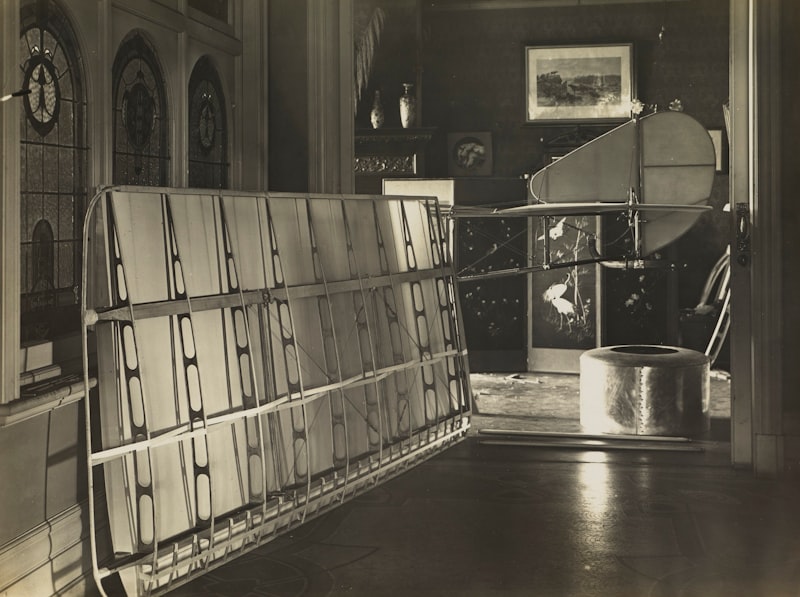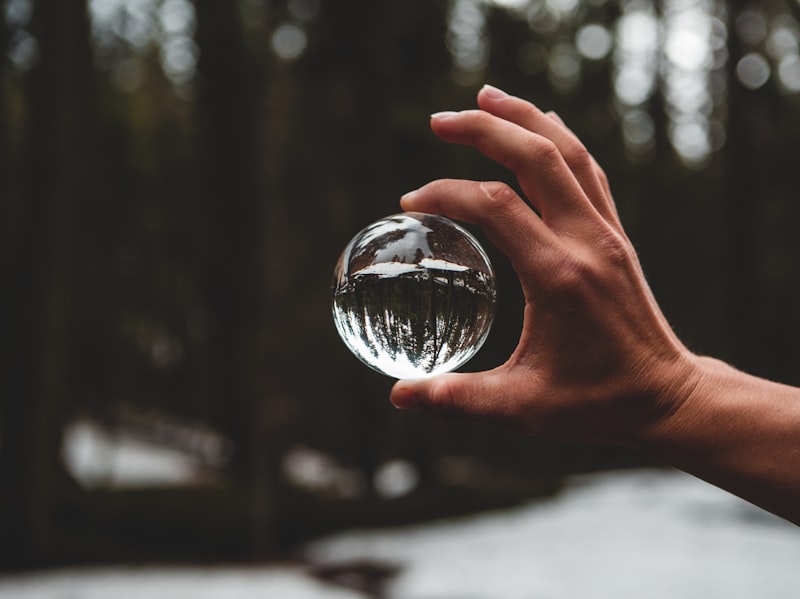- Tanaka dreams hold significant cultural significance in African and Japanese cultures, representing a connection to cultural heritage and a desire for community and tradition.
- The historical context of Tanaka, including its use in ancient civilizations and traditional Japanese culture, influences the interpretation of these dreams, highlighting the importance of cultural preservation and beauty.
- Personal reflections in Tanaka dreams involve emotional and psychological analysis, connection to self-expression and creativity, and a desire for personal growth and transformation.
- Tanaka dreams provide insights into our emotions, desires for self-expression, and aspirations for personal growth, reminding us to embrace our cultural identity and pursue creative endeavors.
Have you ever had a dream about Tanaka? Dreams have the power to hold significant symbolism and meaning, and understanding the interpretation of Tanaka dreams can offer profound insights into our cultural identity, personal reflections, and emotions. Let’s discuss the fascinating world of Tanaka dreams and explore their hidden meanings.
Cultural Significance of Tanaka Dreams

Dreams are a powerful phenomenon that can provide insights into our subconscious mind and emotions. In the case of Tanaka dreams, the cultural significance of this traditional face painting or makeup is of great importance in understanding their symbolism. Tanaka holds different meanings in various cultures, including African and Japanese cultures, each offering unique interpretations.
1. Interpretation of Tanaka Dreams in African Culture
In African culture, Tanaka is often seen as a symbol of beauty, cultural heritage, and protection. It is used for various purposes during special occasions and ceremonies. Dreaming about Tanaka in African cultures may indicate a deep connection to one’s roots and cultural identity.
One interpretation of Tanaka dreams in this context is the desire for a stronger connection to one’s cultural heritage. The dreamer may feel a longing to learn more about their ancestors, traditions, and customs. Dreams about Tanaka can serve as reminders to honor their roots and embrace the values and beliefs passed down through generations.
In some cultures, Tanaka is believed to have spiritual and healing properties. Dreaming of Tanaka water or being sprayed with it may symbolize a need for spiritual cleansing or protection. The dreamer may seek guidance from ancestors or spirits in navigating their life’s challenges.
Furthermore, dreaming about others wearing Tanaka can represent a longing for community and a closer connection to others. It may signify the dreamer’s admiration for individuals who embrace their cultural heritage and express it through their appearance. These dreams can inspire the dreamer to further explore their own cultural identity and foster deeper connections with others.
2. Interpretation of Tanaka Dreams in Japanese Culture
In Japanese culture, Tanaka holds a deep historical and traditional significance. It symbolizes purity, beauty, femininity, and a connection to traditional values. Dreaming about Tanaka in Japanese culture often represents a desire for cultural preservation, grace, and refinement.
Wearing Tanaka in a dream can symbolize a strong connection to Japanese traditions and a desire to honor and preserve these cultural roots. It may also suggest a longing to reconnect with one’s heritage and embrace the values and beliefs that come with it.
In Japanese society, clothing and attire are seen as a reflection of one’s character and social standing. Dreaming of wearing Tanaka can also represent a desire to conform to societal expectations and fit in with the cultural norms.
Additionally, seeing others wearing Tanaka in a dream may indicate admiration or envy. The dreamer may be drawn to the qualities and values associated with the traditional garment, such as grace, elegance, and cultural knowledge. These dreams can inspire the dreamer to embody these qualities or seek inspiration from those who already do.
3. Other Cultural Interpretations
Apart from African and Japanese cultures, Tanaka dreams can hold significance in other cultural contexts as well. For example, dreaming about Tanaka may symbolize an appreciation for beauty, artistry, or cultural diversity. It could represent a desire to learn about different cultures and embrace their unique customs and traditions.
Dreaming about Tanaka can also be seen as a celebration of personal identity and self-expression. It may signify a desire to break free from societal expectations and embrace one’s true self. These dreams can encourage the dreamer to explore their own individuality and express it authentically.
Historical Context of Tanaka Dreams

The role of historical context in understanding the symbolism of Tanaka dreams cannot be understated. The historical significance of Tanaka and its cultural use throughout the years has shaped the way we interpret these dreams. Exploring the history of Tanaka provides valuable insights into its symbolism and meaning.
1. The Role of Tanaka in History
The use of Tanaka can be traced back centuries, with its origins rooted in different cultures and traditions. Understanding the historical context of Tanaka helps us appreciate its cultural significance and the symbolism it holds in our dreams. Here are some key aspects of the historical context of Tanaka dreams:
- Ancient Origins
The use of face painting or makeup can be traced back to ancient civilizations, such as ancient Egypt, Greece, and India. These cultures used various pigments and materials to adorn their faces for religious rituals, theatrical performances, and social events. - Traditional Japanese Culture
In Japan, Tanaka holds deep historical and traditional importance. It refers to the application of white makeup, typically made from rice powder, used by Geishas and Kabuki actors. Geishas, traditional female entertainers in Japanese society, are highly skilled in various traditional arts such as dancing, singing, and playing instruments. - Japanese Rituals and Customs
The use of Tanaka is often associated with traditional Japanese ceremonies, such as tea ceremonies, weddings, and festivals. These events are steeped in ritualistic practices and cultural symbolism. In these contexts, wearing Tanaka is seen as a way to honor tradition and convey a sense of elegance and beauty. - Social Status and Tradition
During different historical periods in Japan, social status was closely tied to one’s appearance and attire. The quality of the fabric, the design, and the way Tanaka was worn indicated the social standing of the individual. Tanaka became a symbol of refinement, purity, and social rank. - Cultural Exchange and Global Awareness
In recent years, there has been a growing interest in Japanese culture worldwide, with Tanaka becoming synonymous with Japanese aesthetics. The image of a Geisha wearing Tanaka has become iconic and is often associated with traditional Japanese culture and its unique beauty.
2. The Influence of History on Dream Interpretation
The historical context of Tanaka influences the interpretation of Tanaka dreams in profound ways. Here are some key points to consider when interpreting the historical context of Tanaka dreams:
- Connection to Cultural Heritage
Dreams about Tanaka can symbolize a deep connection to one’s cultural heritage and ancestry. The historical significance of Tanaka represents a longing for connection with the past and a desire to honor and preserve cultural traditions. - Desire for Tradition and Ritual
Dreaming of Tanaka may suggest a need for ritualistic practices or a desire to incorporate traditional customs into one’s life. The historical context of Tanaka reminds us of the importance of ceremony and tradition in shaping our identities and providing a sense of belonging. - Reflections on Beauty and Elegance
The historical use of Tanaka in Japan as a symbol of beauty and elegance influences our interpretation of dreams involving Tanaka. These dreams may reflect our own desires for refinement, aesthetics, and grace in our lives. - Exploration of Cultural Identities
Dreaming about Tanaka can be seen as an invitation to explore different cultural identities and expand our understanding of diverse traditions. The historical context encourages us to embrace cultural exchange and appreciate the richness of global heritage.
Personal Reflections in Tanaka Dreams

When it comes to understanding the symbolism and meaning behind Tanaka dreams, personal reflections play a crucial role. These dreams can evoke a range of emotions and provide valuable insights into our own experiences, desires, and aspirations. By exploring the emotional and psychological analysis, connection to self-expression and creativity, as well as the role of personal growth and transformation in Tanaka dreams, we can gain a deeper understanding of their significance.
1. Emotional and Psychological Analysis:
Dreams involving Tanaka can evoke a wide range of emotions, and analyzing these emotions is key to understanding the personal significance of these dreams. When you dream of wearing Tanaka, for example, the feelings associated with this dream can offer valuable insights into your emotional state. If you feel joyful, confident, or proud while wearing Tanaka in your dream, it may indicate a sense of self-assurance, cultural pride, or a desire to express your individuality. On the other hand, if you feel uncomfortable or restricted while wearing Tanaka, it might suggest a fear of judgment or a need to conform to societal expectations.
Additionally, dreaming of seeing others wearing Tanaka can generate various emotional responses. If you feel admiration or envy towards those individuals, it may indicate a desire to embody their qualities or connect with their cultural heritage. On the other hand, if you feel disconnected or distant from the people wearing Tanaka in your dream, it could suggest a longing for deeper connections or an exploration of your own cultural identity.
By analyzing the emotions experienced during Tanaka dreams, you can gain valuable insights into your own desires, fears, and aspirations. These emotional responses serve as guideposts in understanding the personal significance of Tanaka dreams.
2. Connection to Self-Expression and Creativity:
Dreaming about Tanaka frequently signifies a deep desire for self-expression and creativity. The vibrant colors and intricate patterns associated with Tanaka represent an opportunity to embrace one’s uniqueness and celebrate individuality. When you dream of wearing Tanaka, it may symbolize a longing to express your true self and share your creative gifts with the world. It could signify a need to break free from societal expectations and embrace your authentic voice.
Dreaming of choosing or buying Tanaka further emphasizes the connection to self-expression and creativity. The act of selecting Tanaka represents a conscious decision to explore new avenues for self-expression and embrace your unique identity. It may suggest that you are ready to embark on a journey of self-discovery, where you can tap into your own creative potential and engage in activities that bring you joy and fulfillment.
By recognizing the connection between Tanaka dreams and self-expression, you can gain clarity on how to incorporate creativity into your waking life. These dreams serve as reminders to honor your passions, pursue your artistic endeavors, and authentically express yourself in all aspects of life.
3. Personal Growth and Transformation:
Tanaka dreams often reflect the dreamer’s desires for personal growth and transformation. The symbolic nature of Tanaka evokes a sense of elegance, beauty, and refinement. When you dream of wearing Tanaka, it may symbolize a longing for personal growth, an aspiration for self-improvement, or a desire for transformation. It reflects an inner drive to become the best version of yourself and embrace new opportunities for growth.
Moreover, dreaming about choosing or buying Tanaka can signify an important turning point in your life. It represents the pursuit of personal development, the willingness to make conscious choices, and the recognition that change is necessary for personal growth. These dreams provide a push towards self-reflection, encouraging you to evaluate your values, beliefs, and aspirations.
Interpreting Tanaka dreams through the lens of personal growth and transformation allows you to recognize the opportunities for self-improvement that lie within these dreams. It reminds you to embrace change, take risks, and embark on a journey of personal growth and transformation.
Conclusion
In exploring the symbolism of Tanaka dreams, we uncover a rich tapestry of cultural heritage, personal growth, and emotional connection. These dreams carry the weight of African and Japanese traditions, reminding us of the importance of community and our ties to the past. Their origins in ancient civilizations and continued significance in modern Japanese culture highlight the beauty of preserving our cultural heritage. As we navigate these dreams, we delve into our own emotional and psychological landscapes, searching for self-expression, creativity, and personal transformation. Tanaka dreams offer us a profound opportunity to understand our deepest desires and aspirations, urging us to embrace our cultural identity and pursue creative endeavors. Let these dreams guide you on a journey of self-discovery and cultural appreciation.










Leave a Reply